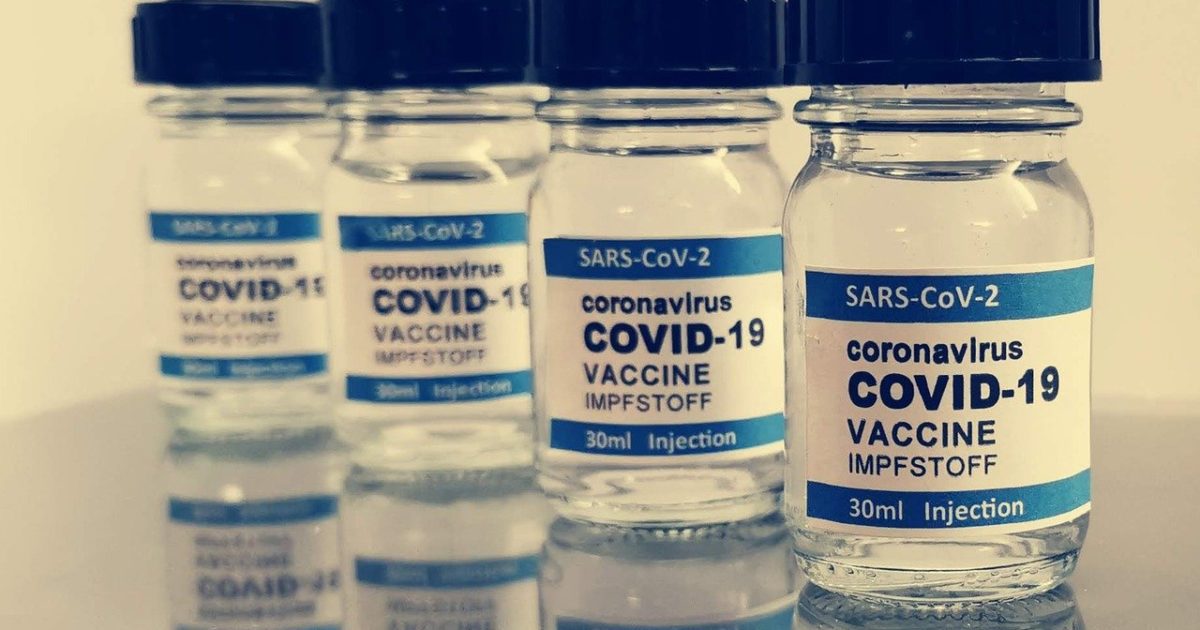A study in the leading medical journal ‘Vaccines’ has found that mRNA injections are significantly associated with cerebral venous thrombosis (CVT).
The study, published on May 18th, 2022, analyzed 1,154,023 adverse event reports from more than 130 countries.
Researchers stated, “awareness about the risk of CVT, even after COVID-19 mRNA vaccination, is necessary.”
— Dr. Simone Gold (@drsimonegold) May 21, 2022
‘Vaccines‘ “is an international, peer-reviewed, open access journal published monthly online by MDPI.”
The study’s abstract states:
Cerebral venous thrombosis (CVT), a rare thrombotic event that can cause serious neurologic deficits, has been reported after some ChAdOx1 nCoV-19 vaccinations against coronavirus disease 2019 (COVID-19). However, there are few reports of associations between COVID-19 mRNA vaccination and CVT. We retrospectively analyzed CVT occurrence, time of onset after vaccination, outcomes (recovered/not recovered), and death after COVID-19 vaccination from adverse drug reactions (ADR) reports in VigiBase. A disproportionality analysis was performed regarding COVID-19 mRNA vaccines (BNT162b2 and mRNA-1273) and the ChAdOx1 nCoV-19 vaccine. We identified 756 (0.07%) CVT cases (620 (0.05%) after BNT162b2 and 136 (0.01%) after mRNA-1273) of 1,154,023 mRNA vaccine-related ADRs. Significant positive safety signals were noted for COVID-19 mRNA vaccines (95% lower end of information component = 1.56; reporting odds ratio with 95% confidence interval (CI) = 3.27). The median days to CVT onset differed significantly between the BNT162b2 and ChAdOx1 nCoV-19 vaccines (12 (interquartile range, 3–22) and 11 (interquartile range, 7–16), respectively; p = 0.02). Fewer CVT patients died after receiving mRNA vaccines than after receiving the ChAdOx1 nCoV-19 vaccine (odds ratio, 0.32; 95% CI, 0.22–0.45; p < 0.001). We noted a potential safety signal for CVT occurrence after COVID-19 mRNA vaccination. Therefore, awareness about the risk of CVT, even after COVID-19 mRNA vaccination, is necessary.
From the discussion:
The key findings of our study of CVT cases from VigiBase reported by 130 countries are that the potential safety signal for the development of CVT was noted in mRNA-based COVID-19 vaccines as well as the ChAdOx1 nCoV-19 vaccine compared with the entire dataset.There are few reports on CVT after mRNA-based COVID-19 vaccination [17,28]. These studies suggested that CVT occurrences related to mRNA-based COVID-19 vaccines may be due to endothelial dysfunction caused by spike glycoprotein interactions with endothelial cells resulting in immunothrombosis. If the spike glycoprotein of mRNA-based COVID-19 vaccines binds to the angiotensin-converting enzyme 2 receptor, several inflammatory and thrombogenic molecules, such as leukocyte chemotactic factors, cell adhesion molecules (vascular cell adhesion molecule 1 and intercellular adhesion molecule 1), and procoagulant cytokines, can be activated. This mechanism may cause endothelial dysfunction, particularly in brain endothelial cells [29], which could contribute to a significant disruption of brain endothelial barrier integrity, ultimately promoting thrombus formation. Moreover, a previous study suggested that the spike glycoprotein may induce platelet aggregation and activation and eventually result in thrombus formation [30]. Although the period of time in which the spike glycoprotein persists has not been clearly established, several studies have suggested that it may last for weeks. Thus, spike glycoprotein-related platelet activation triggered by mRNA-based COVID-19 vaccines could explain the trend of CVT occurrences after mRNA-based COVID-19 vaccinations [30,31]. Furthermore, in line with these previous case reports, our results showed that CVT occurred mainly within a few weeks of mRNA-based COVID-19 vaccinations.



Join the conversation!
Please share your thoughts about this article below. We value your opinions, and would love to see you add to the discussion!